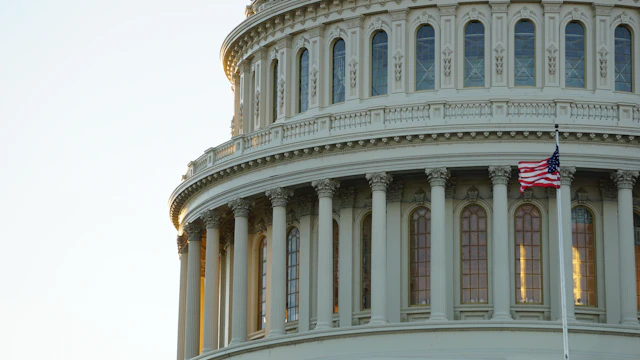WASHINGTON – December 21, 2022 – Congressional leaders have introduced a bipartisan Fiscal Year 2023 (FY23) omnibus spending bill that includes significant investments for suicide prevention and mental health programs. The House and Senate are expected to consider this end-of-year package before the 117th Congress adjourns in the coming days, with passage required by Friday evening to avoid a government shutdown.
Laurel Stine, Executive Vice President and Chief Policy Officer of the American Foundation for Suicide Prevention (AFSP) releases the following statement:
“AFSP commends Congressional leaders for collaborating on a bipartisan FY23 spending package that prioritizes suicide prevention programs and mental health supports for all Americans. This legislation demonstrates Congress’ commitment to making investments in key suicide prevention programs and services that help save lives, including providing additional funding for the 988 Suicide and Crisis Lifeline and the Centers for Disease Control’s Comprehensive Suicide Prevention Program. We are pleased that the bill enacts several of AFSP’s priorities, including expanding access to mental health care through Medicare, providing greater access to suicide prevention services and risk screening in healthcare settings and emergency departments, and better addressing the mental health needs of Veterans. We encourage swift passage of the omnibus legislation, and we look forward to working with Congress to support suicide prevention initiatives.”
The omnibus spending bill contains many notable provisions and funding levels for important suicide prevention and mental health programs, including the following:
- $501.6 million for 988 and Behavioral Health Crisis Services, $390 million above the FY22 enacted level. The legislation includes dedicated funding for a Behavioral Health Crisis and 988 Coordinating office at the Substance Abuse and Mental Health Services Administration (SAMHSA); Spanish speaker access; and capacity and infrastructure for youth callers, chats, and texts. It also directs SAMHSA to create a public awareness campaign about the new 988 Suicide and Crisis Lifeline (Lifeline) and promotes follow-up care for those contacting the Lifeline.
- $30 million for the CDC’s Comprehensive Suicide Prevention Program (CSP), $10 million above the FY 22 enacted level. The CSP currently provides grants to 15 states and 2 universities to implement suicide prevention strategies for high-risk populations, including Veterans, racial and ethnic minorities, youth, members of the LGBTQ community, and others.
- $24.5 million for the National Violent Death Reporting System (NVDRS), matching the FY22 enacted level, to sustain surveillance and data collection regarding violent deaths in the United States, including those by suicide. NVDRS provides valuable insight into trends that reveal who is dying by suicide.
- $385 million for Certified Community Behavioral Health Clinics, $70 million above the FY22 enacted level, to connect individuals with coordinated, comprehensive behavioral health care in their communities.
- $1.01 billion for the Community Mental Health Services Block Grant, $150 million above FY22 levels, including a five percent set-aside of the total for evidence-based crisis care programs that address the needs of individuals with serious mental illnesses, children with serious emotional disturbances, or individuals experiencing a mental health crisis.
- $52.3 million for the Garrett Lee Smith-Youth Suicide Prevention State and Campus grants and $11 million for the Garrett Lee Smith Suicide Prevention Resource Center, $7 million and $2 million above FY22 levels, respectively. These programs enable states, campuses, and Tribal communities to implement suicide prevention programs for youth.
The bill also includes several new important provisions to support mental health and suicide prevention that AFSP advocated for, including:
- Expanding access to mental health care for Medicare beneficiaries, including adding Marriage and Family Therapists and Licensed Mental Health Counselors as mental health professionals eligible to bill Medicare for outpatient mental health care; extending telehealth benefits for an additional two years; and including mobile crisis teams as eligible for Medicare coverage.
- Requiring the Department of Health & Human Services to provide guidance to states and establish a technical assistance center on the continuum of crisis services in Medicaid and CHIP, including how Medicaid and CHIP can support the 988 Suicide and Crisis Lifeline.
- Providing new grant funding opportunities for suicide prevention services and risk screening in healthcare settings and emergency departments.
- Eliminating copayments for the first three outpatient mental health visits by a Veteran within the Veterans Health Administration health system each year and adding new authorities for the Veterans Health Administration to research veterans’ health outcomes.
The omnibus spending bill provides significant investments and expands the reach of critical mental health services, which will enable more Americans to access life-saving supports. AFSP once again applauds Congress for putting forth a robust set of mental health and suicide prevention priorities in the spending package, and we strongly urge its passage.
About American Foundation for Suicide Prevention (501(c)(3))
The American Foundation for Suicide Prevention is dedicated to saving lives and bringing hope to those affected by suicide, including those who have experienced a loss. AFSP creates a culture that’s smart about mental health through public education and community programs, develops suicide prevention through research and advocacy, and provides support for those affected by suicide. Led by CEO Robert Gebbia and headquartered in New York, with a public policy office in Washington, DC, AFSP has local chapters in all 50 states including Puerto Rico, with programs and events nationwide. Learn more about AFSP in its latest Annual Report, and join the conversation on suicide prevention by following AFSP on Facebook, Twitter, Instagram, and YouTube.
###
